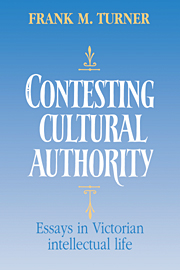Book contents
- Frontmatter
- Contents
- Preface
- I SHIFTING BOUNDARIES
- II SCIENCE AND THE WIDER CULTURE
- III MODERNS AND ANCIENTS
- 9 British politics and the demise of the Roman republic: 1700–1939
- 10 Ancient materialism and modern science: Lucretius among the Victorians
- 11 Virgil in Victorian classical contexts
- 12 The triumph of idealism in Victorian classical studies
- Index
9 - British politics and the demise of the Roman republic: 1700–1939
Published online by Cambridge University Press: 22 September 2009
- Frontmatter
- Contents
- Preface
- I SHIFTING BOUNDARIES
- II SCIENCE AND THE WIDER CULTURE
- III MODERNS AND ANCIENTS
- 9 British politics and the demise of the Roman republic: 1700–1939
- 10 Ancient materialism and modern science: Lucretius among the Victorians
- 11 Virgil in Victorian classical contexts
- 12 The triumph of idealism in Victorian classical studies
- Index
Summary
During the past quarter century scholars from several disciplines have established the central metaphorical function of the demise of the ancient Roman republic for both literary and political discourse in eighteenth-century Britain. But the reverse side of that inquiry – the impact of the analogy between Britain and Rome on the modern historical interpretation of the ancient republic – has received virtually no attention. This oversight has concealed a remarkable modern British historiographical phenomenon that did not end at the close of the eighteenth century. Rather, for over two hundred years modern British political ideologies and preoccupations determined not only how the collapse of the Roman republic would be interpreted but also in large measure even whether it would receive historical examination. The various shifts of historical interpretation from the age of Queen Anne through that of Chamberlain illustrate with stunning and disturbing clarity the relentless manner in which contemporary political concerns can shape, revise, and eventually overwhelm modes of historical understanding without the discovery of significant new evidence or the application of new methodology. By the twentieth century methodology itself, in the form of prosopography, in part served the ends of political commentary.
An essayist in the Monthly Review of 1764 succinctly stated the assumptions that informed eighteenth-century discussion of the Roman republic:
It is certain, that a thorough acquaintance with the Roman government must afford the most useful information to the subjects of a free State, and more especially to our own: for there is undoubtedly a very strong resemblance between the general forms of each; both being of a mixed nature, compounded of royalty, aristocracy, and democracy, though the respective powers of these three orders were, in each constitution, blended together in very different proportions. […]
- Type
- Chapter
- Information
- Contesting Cultural AuthorityEssays in Victorian Intellectual Life, pp. 231 - 261Publisher: Cambridge University PressPrint publication year: 1993
- 1
- Cited by

